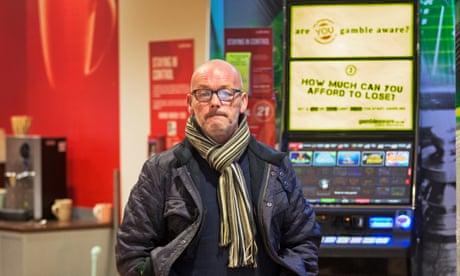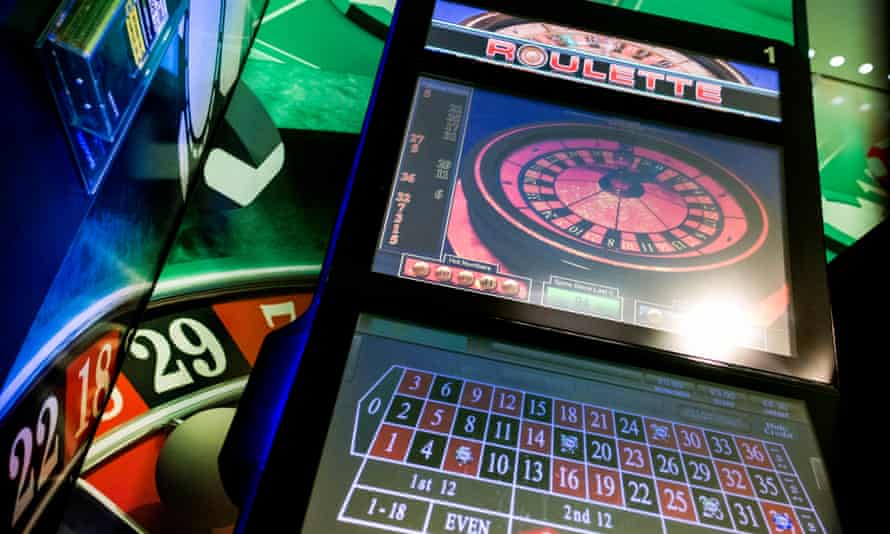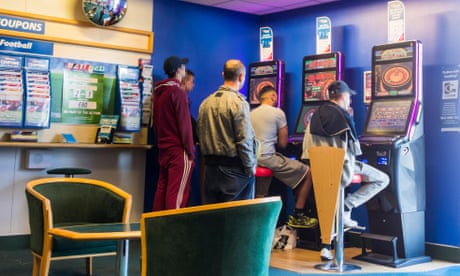High stakes battle on the high street: Newham’s fight against FOBTs
Odds Betting: I see them come up and down, betting shop to the bank machine, back and forth. They walk past me like I’m a ghost,” says Kelly, a young homeless woman sitting on the pavement between Lloyds Bank and Betfred in Newham, east London.
For upon |She prefers to spend what little change she collects from passers-by on a bed for the night and doesn’t see the appeal of gambling. But plenty of others in England’s 25th most-deprived borough find it more difficult to resist the allure.
In the 800m stretch between Kelly’s spot and East Ham underground station, there are nine bookmakers to choose from, each with their permitted maximum of four fixed-odds betting terminals (FOBTs). Odds Betting.
What you need to know about FOBTs
Soon, these controversial machines will no longer be able to take £100 bets every 20 seconds. The government has announced a 12-week consultation to determine whether the maximum bet should be cut to £50, £30, £20 – or just £2.

Newham’s mayor, Sir Robin Wales, is spearheading the plea from 93 local authorities for the lowest possible stake and thinks the government is pussyfooting around the bookmakers.
“The government has bottled it, run away from the decision it should make. The fact they haven’t said their favored option is £2 … they should be ashamed of themselves,” he says.
“Two pounds is what you get on fruit machines in a pub or bingo hall. At that point, it will be less economic for the bookies and they’ll close some shops and give us back part of our high street.” Odds Betting.
Malcolm George, chief executive of the Association of British Bookmakers, recently warned that Wales’s preferred option would force his members’ shops to close, to be replaced not by “bijou bakeries” but by “grotty amusement arcades”.
The claim renders Wales almost apoplectic: “I have to be careful here. How dare he tell us what our high streets would be like?
“Of course, we won’t have a bijou bakery, we’re not looking for a bijou bakery. But which shops round here are empty? We’ll get a different shop, selling clothes or something else.”

By happy coincidence, he has stopped outside Jenningsbet, a bookmaker that sits next door to a branch of the East London bakery chain Percy Ingle. “There’s your bijou bakery,” he says.
Wales insists he isn’t a nanny statist and is not against the principle of gambling, citing the more controlled environment of the nearby casino at Stratford. Odds Betting
His issue is with the daily fallout from the clustering of bookmakers’ shops in a borough that, despite enjoying significant economic improvements, remains one of the poorest areas in Britain.
There are 81 bookmakers in Newham, compared with 56 in Wandsworth, a borough in southwest London with a similar population but which is considerably wealthier.
This, says Wales, is evidence that bookmakers target areas where people are poor and desperate. He claims the bookies have sucked £20m out of Newham in a year.
The claim is based on evidence from the Campaign for Fairer Gambling, the arch-enemy of the bookmakers, who dispute the group’s figures and claim it has ties to the casino industry. Poker High Stakes.
But spend any time in one of Newham’s many bookies and it’s easy to see how big losses are racked up on machines that each bring in an average profit of more than £50,000 a year from gamblers.
Even at a stake level well below £20, the second-lowest option available to the government, money would still be drained out of gamblers’ pockets at a rapid clip.
In one dimly lit branch of Betfred, two £10 stakes on a game of digital roulette disappear within two minutes: the machine has banked a sum equivalent to a quarter of one week’s basic universal credit payout, or three hours of work at the minimum wage of £7.50 an hour.
Down the road sit three branches of Paddy Power within yards of each other, allowing the bookmaker to fit 12 machines into the area, a strategy known as “clustering”. If the machines pull in the average profit, they will be generating £600,000 profit a year.
Here the rub of the green is a touch smoother. Not only does a staff member proffer a cup of tea, but my £10 stake quickly becomes £28. Poker High Stakes.
Not so for the punter on the neighboring machine. The young man, who is not keen to talk, becomes increasingly distressed, pacing up and down during each spin of the wheel, refusing to look until the roulette ball comes to a halt.
“Motherfucker!” he shouts, half at the machine, half at shop staff sitting behind protective glass.
“One more spin, yeah? 25 is my number.” One more spin is a pipe dream. He is still playing 10 minutes later.
The machine he is playing features a display showing which numbers are “hot” and which are “cool”, i.e. how often the roulette ball has landed on them recently. This creates the illusion that the game is anything other than random – a feature that came in for heavy criticism recently from GambleAware.
In Jenningsbet, a mix of blackjack, slots, and roulette quickly turns £10 into £2 and it gets even worse in Ladbrokes, as £10 disappears into the ether in a matter of minutes, again on the digital roulette table. Poker High Stakes.
All told £50 has turned into £32 over four bookmakers. Replicate that loss 100m times and you arrive at the £1.8bn that bookmakers generated from FOBTs last year.

Back in Ladbrokes, Lady Luck has also deserted the man at the next machine. He storms out onto the high street, slamming his hand against the glass door before pacing off into the distance.
The police are called out to deal with antisocial behavior at betting shops on average 1.2 times a day in Newham – another reason Wales thinks his borough would be better off with fewer of them. Poker High Stakes.
“I’m not telling people how to spend their money. If you want to gamble, I think it’s stupid but it’s your right. But we don’t have to put it on everybody’s doorstep all the time.
“We’re just trying to say we shouldn’t have these things on our high streets, causing anti-social behavior, sucking money out of the economy,” adds Wales. “We don’t sell tobacco to kids … there are restrictions on things we do.”
“Stupid” or not, the enduring pull of FOBTs remains undeniable. Marian, 25, moved to Newham from Romania. He likes to visit bookmakers to watch football and bet on it but has found himself increasingly drawn to the machines.
“1I went in there with £100 to bet on the Champions League but I saw the machines and …” (He performs a sort of impulsive twitch, indicating the magnetic pull of the FOBT.)
“I spent £10 on the Champions League and £90 on the machines … 1I want to play, make easy money. I lost. Now I have no money.”
Over the next 12 weeks, the government must decide how it wishes to proceed with FOBT stakes. On one side of the argument, advocating a cut to £2, are Labour, the Liberal Democrats, the DUP, 93 local councils, ex-addicts turned campaigners and the Church of England. On the other side sit the bookmakers and assorted purveyors of free-market dogma.
The article was originally published here.


Comments are closed.